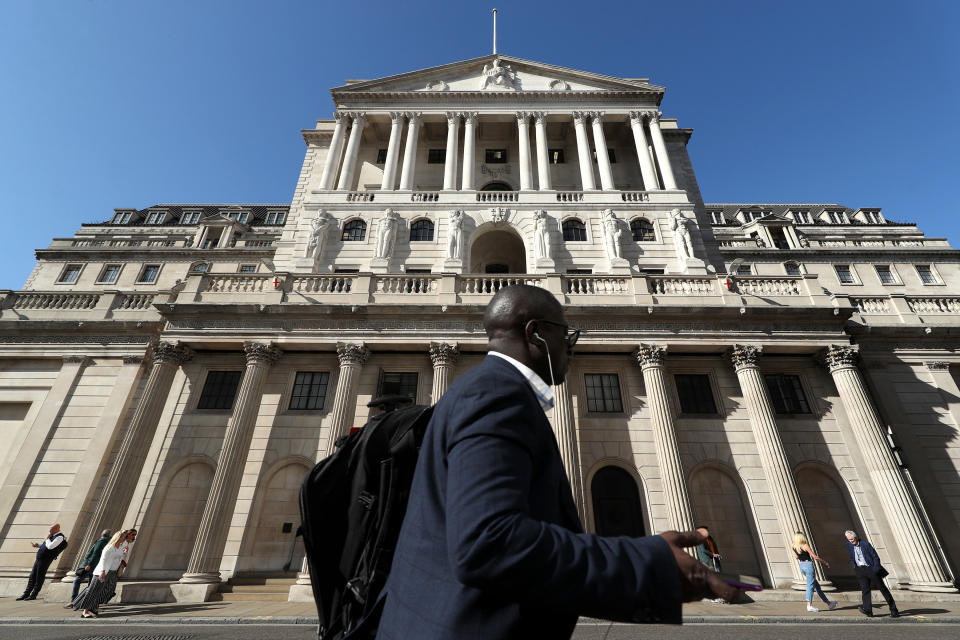UK inflation hits new three-year low, piling pressure on Bank of England

Inflation in December came in lower than expected at 1.3%, hitting a new three-year low and well below the Bank of England’s 2% target.
Analysts had predicted that prices grew by 1.5% in December compared with the same month in 2018.
The sluggish inflation, the lowest since December 2016, puts further pressure on the Bank of England to cut interest rates later this month, and comes after data earlier this week showed that the UK economy unexpectedly shrank by 0.3% in November.
Analysts had predicted that the economy would continue to flat-line, following the 0.1% growth seen in the previous two months.
“Inflation eased in December as prices for hotel stays dropped. Women’s clothing prices also fell with more items being discounted,” said Mike Hardie, the head of inflation at the Office for National Statistics (ONS), on Wednesday.
READ MORE: UK house prices increase at fastest rate in more than a year
Large downward contributions also came from restaurants and footwear.
There were smaller downward contributions from food and non-alcoholic beverages and transport, but these were partially offset by price increases in furniture, household equipment and maintenance, as well as in communications and miscellaneous goods and services.
Compared with November, price growth was stagnant at 0%.
The ONS also said on Wednesday that, in November, UK house prices increased at the fastest annual rate in more than a year.
Average prices rose by 2.2% in the year to November, a significant uptick on the 1.3% year-on-year growth recorded in October.
On Monday, the ONS said that the month-on-month decline in economic growth — the sharpest in seven months — was driven by falls in both the services and production sectors.
Compared with the same month in 2018, the UK economy grew by 0.6% in November, the slowest growth since the spring of 2012, the ONS noted.
Several members of the Bank of England’s rate-setting committee have now indicated that they could support a rate cut.
READ MORE: UK economy shrank significantly ahead of general election
“A relatively mediocre Christmas trading period may go some way to explain why inflation is still languishing below its 2% target,” said Robert Alster of Close Brothers Asset Management on Wednesday.
“These figures back up outgoing Bank of England governor Mark Carney’s suggestion that there is clear headroom to cut interest rates to stimulate the economy if required,” Alster said.
Any decrease in interest rates would be the first cut since 2016, when the Bank of England briefly lowered the borrowing rate to 0.5%. The UK interest rate currently stands at 0.75%, a level it has been at for the majority of the post-financial crisis era.
The next interest rates decision from the Bank of England’s Monetary Policy Committee is due on 30 January.

 Yahoo Finance
Yahoo Finance 
